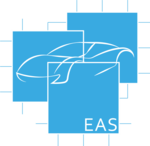
Contact
wsos(at)iti.tugraz.at
News
List of Participant updated
Hands-on-Lab and Program updated
List of Speakers (Winter School)
This is a preliminary and still growing list of speakers for the Winter School:
Prof. Dr. Gernot Heiser
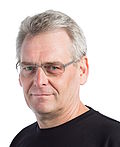
The University of New South Wales (UNSW), Australia
Provable Security/Safety: The seL4 Microkernel and its Use in Critical Systems
Gernot Heiser is Scientia Professor and John Lions Chair of Operating Systems at UNSW Australia, and leads the Trustworthy Systems Research Group at Data61 (formerly NICTA), Australia’s National Centre of Excellence for ICT Research. He joined NICTA at its creation in 2002, and before that was a full-time member of academic staff at UNSW from 1991. His past work included the Mungi single-address-space operating system (OS), several un-broken records in IPC performance, and the best-ever reported performance for user-level device drivers. More recently his team at NICTA produced the world’s first formal proof of functional correctness of a general-purpose operating-system kernel, the first published sound worst-case execution time analysis of a protected OS kernel, and the synthesis of high-performance device drivers. In 2006, Heiser with a number of his students founded Open Kernel Labs, to market secure virtualization technology for embedded systems. The company’s OKL4 operating system, a descendent of L4 kernels developed by his group at UNSW and NICTA, is deployed in billions of mobile devices, and now ships on the security processor of all iOS devices. Open Kernel Labs was sold to General Dynamics in August 2012.
Prof. Dr. Rüdiger Kapitza
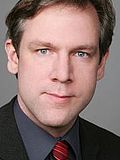
Braunschweig University of Technology, Germany
Trusted Execution as a Basis for Secure and Reliable Distributed Systems
Rüdiger Kapitza studied Computer Science at the FAU Erlangen-Nürnberg and the University of Freiburg. He obtained his PhD from the FAU Erlangen-Nürnberg in 2007. In 2010, he was a visiting scientist at IBM Research Zurich. Since 2012, he is a professor at the TU Braunschweig, there he leads the distributed systems group at the Institute of Operating Systems and Computer Networks. His research interests can be broadly summarized as systems research targeting fault-tolerant and secure distributed systems with special focus on Byzantine fault tolerance and selected aspects of trusted execution. Currently, he investigates the use of hardware-based trusted execution support in the context of the EU project SERECA that aims at improving the trustworthiness of Cloud Computing. His talk will focus on the foundations and usage scenarios of trusted execution in distributed systems as well as give an initial introduction to Intel's recently published Software Guard Extensions.
Dieter Kasper
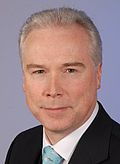
Fujitsu Technology Solutions, Germany
How distributed Intelligence can create Reliability
Dieter Kasper is Chief Architect for BS2000, Enterprise Platform Services at Fujitsu Technology Solutions GmbH. He was a member of the CTO team in FTS, and CTO of Data Center Infrastructure and Services at FTS. He received his Diploma in Mathematics from the TU Munich and spent 27 years in the IT development, mainly Enterprise Storage, working for Siemens, SNI, FSC, and Fujitsu. He was involved in the invention and development of a distributed, scale-out Storage system for Mainframe & OpenSystem.
Dr. Daniel Lohmann
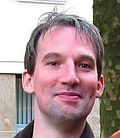
University of Erlangen-Nuremberg, Germany
Static Tailoring of System Software: Pay Only For What You Use!
Daniel Lohmann is Associate Professor at the Chair of Distributed Systems and Operating Systems at FAU. He received his diploma (Dipl.-Inform.) from University of Koblenz, Germany in 2002. In 2003 he joined the group of Wolfgang Schröder-Preikschat at FAU, where he received his PhD (Dr.-Ing.) in 2009 and his venia legendi (Dr.-Ing. habil.) in 2014 and is leading the research group on tailorable and configurable system software. Dr. Lohmann is a member of GI, ACM, and IEEE.
PhD Gilles Muller
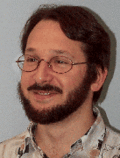
Inria, France
Coccinelle: A Program Matching and Transformation Tool for Systems Code
Gilles Muller received the Ph.D. degree in 1988 from the University of Rennes I, and the Habilitation Diriger des Recherches degree in 1997 from the University of Rennes I.
After having been a researcher at INRIA and a Professor at the Ecole des Mines de Nantes, he is currently a senior research scientist at INRIA Paris in the LIP6 laboratory. His research interests include the development of new methodologies based on the use of domain-specific languages for the structuring of operating systems. Gilles Muller was the vice chair of the ACM/SIGOPS from July 2003 to July 2007.
Gilles Muller has co-authored more than 80 international articles in journals and conferences such as TOCS, TOPLAS, ACM Computing Surveys, TCS, IEEE Software, IEEE Transactions on Reliability, ASPLOS, OSDI, POPL, EuroSys, DSN, OOPSLA, ECOOP and VEE. He has co-authored 3 patents in the domains of fault-tolerant systems and Java.
Gilles Muller was the Program Chair of EuroSys2010 and PLOS2010. He has been a program committee member for conferences in dependable systems and operating systems such as ACM EW, ACM Eurosys, ASPLOS, DSN, ICDCS, and SRDS. He was the General Chair of the ACM SIGOPS/EW2002 workshop and the French federated conferences RENPAR/CFSE/SYMPA/JC 2005.
Dr. Moritz Neukirchner
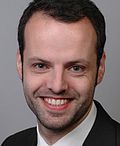
Elektrobit Automotive GmbH, Germany
Multi-core and automotive system software - Concurrency, scheduling, correctness
Moritz Neukirchner is lead architect for the AutoCore (AUTOSAR) development at Elektrobit Automotive GmbH. His responsibilities include the definition of overall architectural concepts and the technical multi-core strategy in the car infrastructure department. He received his Diploma and Ph.D. (both with distinction) in electrical engineering from the Technische Universität Braunschweig working in timing analysis and runtime support for safety-critical real-time systems. Dr. Neukirchner has authored numerous scientific papers and serves as reviewer and PC member of several journals and conferences.
Prof. Dr. Hans Reiser
University of Passau, Germany
Hypervisor-based Security and Reliability Technologies
Hans P. Reiser is professor at University of Passau, where he joined the Institute of IT Security and Security Law in 2011. He holds a PhD in the area of middleware for fault?tolerant systems from Ulm University. Since 2007 he worked as an assistant professor at LaSIGE, University of Lisbon, and in 2010 he spent one semester at the Carnegie Mellon University, Pittsburgh, USA as a visiting professor. Hans P. Reiser's research focus is on technical aspects of reliability and security in distributed systems, including algorithms and architectures for intrusion tolerant systems, adaptability and self?optimization of group communication systems, concepts for secure and reliable cloud computing, and methods for incident investigation in cloud environments.
Prof. Dr. Olaf Spinczyk
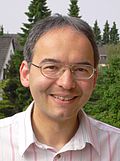
Technical University of Dortmund, Germany
Fault Tolerance in System Software with Aspect-Oriented Programming
Olaf Spinczyk is professor of Computer Science at Technische Universität Dortmund, Germany, where he leads the Embedded System Software Group. Before moving to Dortmund, Olaf worked as a post doc at the University of Erlangen-Nuremberg, Germany. He received his PhD from the University of Magdeburg, Germany, in 2002, for his research on "Operating System Construction by Aspect-Orientation". His current research is focused on the combination of Generic and Generative Programming with AOP in AspectC++, and on applying these techniques in the construction of efficient and reliable system software for embedded systems.
Prof. Dr. Marcel Baunach
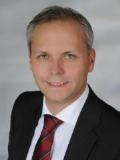
Graz University of Technology, Austria
Compositional Software Design in Embedded Multi-Core Operating Systems
Marcel Baunach is professor for “Embedded Automotive Systems” and head of the corresponding working group at the Institute for Technical Informatics at Graz University of Technology, Austria. He received his PhD from the University of Würzburg, Germany, where he also founded the research area “Wireless Sensor/Actuator Networks”, before he changed to industry as head of hardware development for “Automotive Diagnostics”. In 2013 he returned to academia and joined the Graz University of Technology. His research area is Compositional Hardware/Software/Network-Codesign with a strong focus on Embedded Multi-Core, Real-Time Operating Systems, and Self-Organizing Wireless Communication.
List of Speakers (Spring Meeting)
This is a preliminary and still growing list of speakers for the Spring Meeting:
Dr. Martin Schmatz
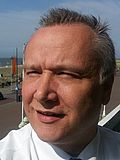
IBM Zurich Research Laboratory, Switzerland
Cognitive Computing
Dr. Martin Schmatz completed his PhD at ETH Zurich/Switzerland and joined the IBM Zürich Research Laboratory in 1999. He established and managed the I/O Link Technology effort optimizing data transport in server systems. Between 2008 and 2014, Dr. Schmatz was leading the Systems Department at the IBM Zürich Research Laboratory, and he took over management responsibilities for the newly formed Cloud Server Technologies team in early 2014. Dr. Schmatz contributed to OIF and JEDEC standards, has 40+ external publications at premier conferences and refereed journals in the field and holds more than 20 patents. He is a member of the IBM Academy of Technology, the IBM Technical Experts Council and has an MBA from the Henley Management College in the UK.
Thomas Pohl
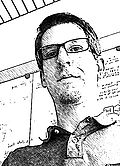
IBM, Germany
System control structure supporting z Systems RAS characteristics
Thomas Pohl is an z Systems firmware developer, complex function owner and team lead for energy management. He graduated from University of Applied Science in Stuttgart and joined IBM and the z Systems firmware development team in 2007. Thomas received an IBM Outstanding Technical Achievement award for the application design of the z Systems firmware development and testing cloud in 2010, holds 6 patents and is Member of the IBM Technical Experts Council.
Hands-on Lab
Horst Schirmeier
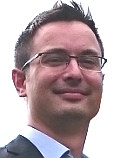
Technical University of Dortmund, Germany
Fault-Injection based Assessment of Software-Implemented Hardware Fault Tolerance
Horst Schirmeier received his diploma from FAU Erlangen in 2007. He is currently in the last stages of his PhD at the Embedded System Software group at TU Dortmund. His research interests are in dependability analysis, hardware-fault injection, software-implemented hardware fault tolerance, and resilient operating-system design.
Marcus Hähnel
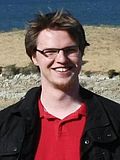
Dresden University of Technology
Marcus Hähnel is currently a PhD student of Prof. Hermann Härtig at the operating systems group of TU Dresden. He received his Diploma, which also started his research interest in energy-aware computing, in 2012.
His research topic is part of the CRC 912 (HAEC) which investigates highly-adaptive, energy-efficient systems. His interests also include microkernel-based systems, real-time systems and embedded systems.